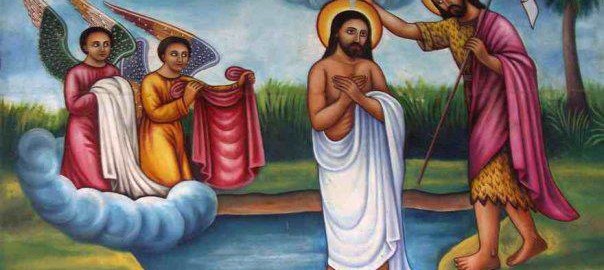“I will give you a new heart and put a new spirit within you; I will take the heart of stone out of your flesh and give you a heart of flesh. I will put My Spirit within you and cause you to walk in My statutes.” (Ezek 36:26-27)
In the biological order, a creature must first be born, and then it must grow. Likewise, in the spiritual order of grace, we are born again in Baptism and then we must grow in the spiritual life and bear the fruits of the Spirit (Gal 5:22-23). We also need to acquire the spiritual power that will enable us to overcome Satan and his army “for we do not wrestle against flesh and blood, but against principalities, against powers, against the rulers of the darkness of this age, against spiritual hosts of wickedne ss in the heavenly places” (Eph 6:12). The Holy Sacrament of Confirmation induces us into God’s spiritual army and the lay priesthood of believers. Our body becomes a temple of the Holy Spirit (1 Cor 6:19) who helps us grow in the spiritual life. Confirmation is a kind of Pentecost to the baptized person.
Institution of the sacrament
The roots of this Sacrament are clear in both the Old and New Testaments. In his sermon on Pentecost, St. Peter quotes the famous words of Joel the Prophet; “I will pour out My Spirit on all flesh” (Acts 2:17; Joel 2:28). Other Old Testament prophets who speak of this same promise of the Spirit include Ezekiel (Ezek 16:9; 36:26-27). Moreover, our Lord Jesus Christ instituted this Holy Sacrament through His various promises for granting the Holy Spirit.
- “If anyone thirsts, let him come to Me and drink. He who believes in Me, as the Scripture has said, out ofhis heart will flow rivers of living water. But this He spoke concerning the Spirit, whom those believing in Him would receive; for the Holy Spirit was not yet given, because Jesus was not yet glorified.” (Jn7:37-38)
- “And I will pray the Father, and He will give you another Helper, that He may abide with you forever – the Spirit of truth, whom the world cannot receive, because it neither sees Him nor knows Him; but you know Him, for He dwells with you and will be in you.” (Jn 14:16-17).
Its independence from baptism
- “Now when the apostles who were at Jerusalem heard that Samaria had received the word of God, they sent Peter and John to them, who, when they had come down, prayed for them that they might receive the Holy Spirit. For as yet He had fallen upon none of them. They had only been baptized in the name of the Lord Jesus . Then they laid hands on them, and they received the Holy Spirit.” (Acts 8:14-17).
- “When they heard this, they were baptized in the name of the Lord Jesus. And when Paul had laid hands on them, the Holy Spirit came upon them.” (Acts 19:5-6).
Administration of the sacrament
Our fathers the Apostles administered this Sacrament by laying on of hands directly after Baptism as mentioned in the Holy Book of Acts (Acts 8:14-17; 19:5-6). Laying on of hands for the dwelling of the Holy Spirit is a specific rite of the Apostles (and their successors the Bishops). In Acts 8, Philip, the deacon and evangelist, preached and baptized the people of Samaria but did not grant them the gift of the Holy Spirit. The Apostles came and later confirmed these new believers with the gift of the Holy Spirit through the laying on of hands (Acts 8:14-17). As the number of believers increased, it was not possible for the Apostles to wander all countries and cities to lay hands on the baptized. So they established Chrismation (Gr. chrismatis, “anointing”) in addition to the laying on of hands:
- “You have an anointing from the Holy One.” (1 Jn 2:20)
- “The anointing which you have received from Him abides in you … the same anointing teaches you concerning all things.” (1 Jn 2:27)
- “He who establishes us with you in Christ and has anointed us is God, who also has sealed us and given us the Spirit in our hearts as a guarantee.” (2 Cor 1:21-22)
Chrismation is performed by anointing the person receiving the sacrament with holy oil called “myron” meaning perfume. This is a symbol that the person has been anointed with the Holy Spirit.

